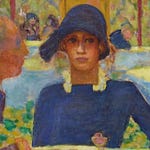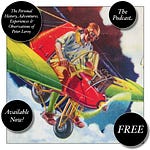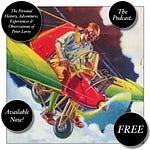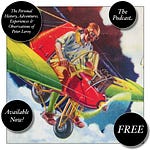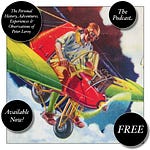OUTSIDE, Matthew sees Robert and his friend walking ahead of him, still talking and waving their arms. A short, heavy woman in a green coat is walking toward them. She looks like a gumdrop. As she approaches them, Matthew sees that she’s saying something, almost shouting. They stop and put their hands on their hips; for a moment, they are a pantomime of homosexual umbrage. The gumdrop woman is really shouting now. They shout back, and the exchange escalates in volume until finally Matthew can make out what the woman’s saying; in the singsong voice children use to taunt one another, she’s saying, “Animals suffered agony to make your coat.”
“Your mother suffered agony to make you, sweetheart,” Robert’s date shouts. Matthew laughs. The whole scene strikes him as funny, these people in various stages of coming unglued. Liz used to think he had no sense of humor, and at the time she may have been right, but he has a sense of humor now — he’s sure he does, it’s one of the many ways he’s changed, as she would be amazed to see if she would take the trouble to look. He’s learned this: a sense of humor is the best defense. He spent a whole childhood moping because he didn’t have the defensive shield of a sense of humor. He has cultivated this sense of humor that he has now, and he believes that he mopes for only a small part of the average day.
HE GETS A CAB at the corner, gives the driver Belinda’s address, and then sits in silence. Whenever he’s alone in a cab, it seems to him that he should talk to the cabdriver, but he never does unless the driver speaks to him first. Cabdrivers, he knows, are supposed to have a wealth of information, a repertoire of amazing stories, but they rarely speak to him, and he never knows what to say to them. This behavior isn’t really a reluctance to talk to cabdrivers as such — he has the same problem with anyone he doesn’t know well — but he’s not usually riding alone in a car with other people he doesn’t know well, so it’s most apparent with cabdrivers.
He rides to Belinda’s without saying a word, and by the time they arrive he’s sure that the driver thinks he’s the kind of supercilious shithead who wouldn’t deign to talk to a cabdriver, so he overtips. This makes him feel like a sap.
He rings Belinda’s bell.
BELINDA is not her real name. Her real name is Linda. Almost a year ago, not long after she and Matthew began having dinner together a couple of nights a week, she decided that Linda, as a name, had had its day. She said to him, “Try calling me Belinda for a while.” He tried it that evening, and an amazing transformation occurred. He had known Linda for years. She was married to a friend of his, and Liz was a friend of hers. He and Linda were friends by extension. When they began going out to dinner together, he still thought of her as his old friend Linda. When he began calling her Belinda, he found that this woman Belinda seemed a lot sexier than his old friend Linda, and at the end of the evening they went nuts, making love on the sofa and rug in Matthew’s living room until they were exhausted. After all those years, they were suddenly lovers — well, not lovers, to tell the truth — something more like sex fiends. It didn’t last. Perhaps friendship is stronger than sex. They are back to being friends, friends who have sex once or twice a week, after dinner or the movies or the theater — still on the couch or the rug, but with something missing. Matthew keeps hoping that she’ll decide to change her name again.
Have you missed an episode or two or several?
You can begin reading at the beginning or you can catch up by visiting the archive or consulting the index to the Topical Guide.
You can listen to the episodes on the Personal History podcast. Begin at the beginning or scroll through the episodes to find what you’ve missed.
You can ensure that you never miss a future issue by getting a free subscription. (You can help support the work by choosing a paid subscription instead.)
At Apple Books you can download free eBooks of Little Follies and Herb ’n’ Lorna.
You’ll find overviews of the entire work in An Introduction to The Personal History, Adventures, Experiences & Observations of Peter Leroy (a pdf document) and at Encyclopedia.com.





